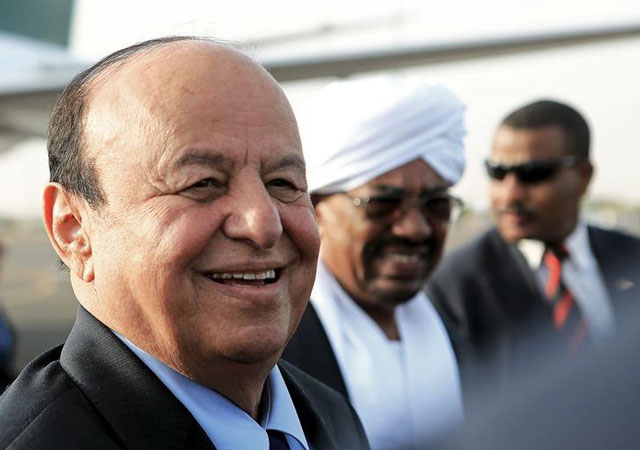
After landing in the provisional capital, Abedrabbo Mansour Hadi went straight to the palace to "supervise" the offensive aimed at retaking rebel-controlled Taez province, a presidential source said.
His return comes just days after Prime Minister Khaled Bahah announced the return of his government to Aden. The president has tried to return before.
In September, after six months of exile in Saudi Arabia, Hadi and Bahah returned to Aden but had to go back to Riyadh after a deadly attack on the provisional seat of government.
Hadi declared the southern port city Yemen's temporary capital after he escaped house arrest in the rebel-held capital Sanaa in February.
The following month, he fled into exile as the rebels and their allies entered Aden, prompting a Saudi-led coalition to launch a military intervention in support of his internationally recognised government.
The UN says that some 5,000 people, more than half of them civilians, have been killed in Yemen since the intervention began. The president will be staying at the Maashiq presidential palace in the central Crater district of Aden.
The palace was severely damaged in the fighting that gripped Aden until July but was recently repaired by the United Arab Emirates, which along with Saudi Arabia is taking a lead role in supporting Hadi's government.
The coalition sent ground troops to Yemen in early August after months of air strikes. It has deployed significant reinforcements for the advance on Taez, Yemen's third city, military officials have said.
Taez has seen heavy fighting in recent months between pro-government forces and the Huthi Shia rebels and their allies. There are loyalist troops inside the city but they are besieged by the rebels.
Pro-Hadi forces and their coalition allies pushed north towards Taez overnight, capturing the village of Waziaa, southwest of the city, military sources said.
The fighting, which has been accompanied by Saudi-led air strikes, has left 26 rebels and 33 loyalists dead since Monday, pro-Hadi military sources said. It has thrown into question UN-brokered peace talks that had been planned for later this month.
A UN bid to launch peace talks in June failed over demands for a rebel withdrawal from seized territory, but this time, much effort has been put into ensuring there is agreement in advance on the agenda.
The humanitarian crisis in Yemen has been identified by the United Nations as one of the world's worst, with 80 per cent of the country's population on the brink of famine.
1731933289-0/BeFunky-collage-(68)1731933289-0-405x300.webp)


1731931652-0/BeFunky-collage-(67)1731931652-0-165x106.webp)













COMMENTS
Comments are moderated and generally will be posted if they are on-topic and not abusive.
For more information, please see our Comments FAQ